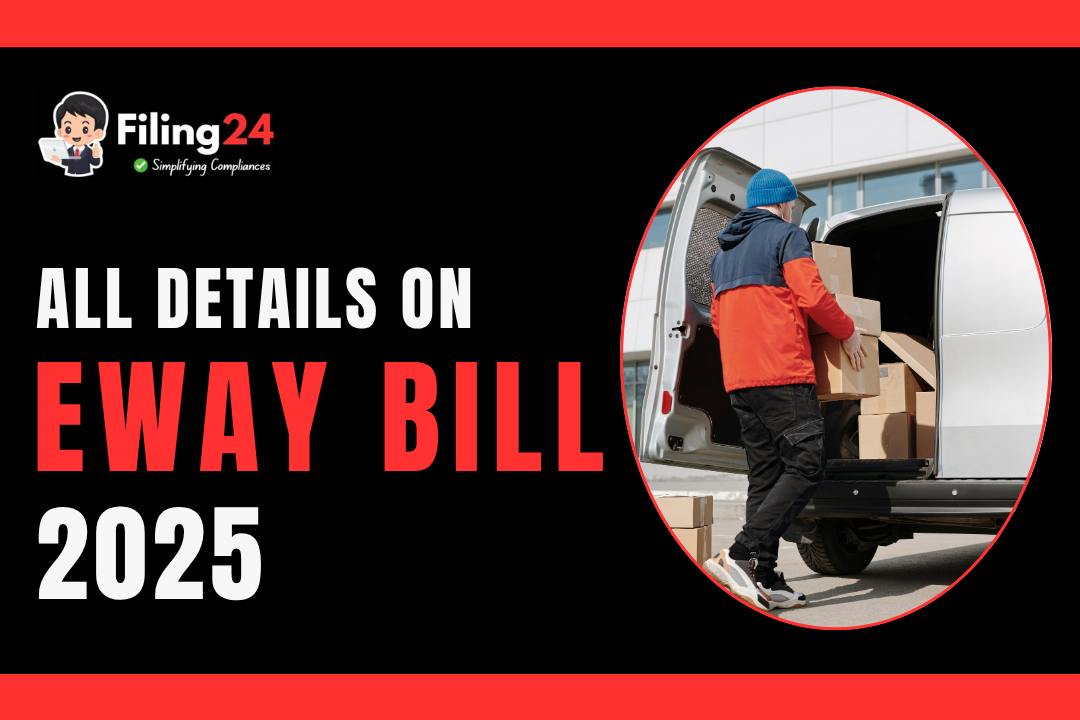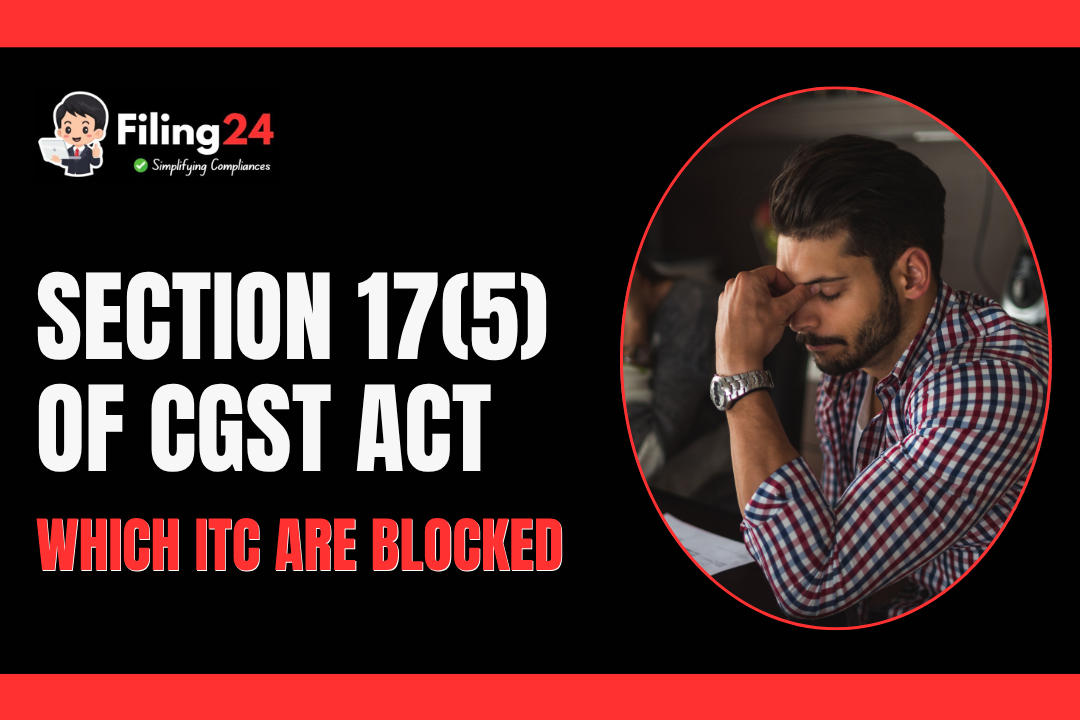The E-Way Bill system under GST mandates the generation of an electronic document when transporting goods valued over ₹50,000. This system facilitates real-time tracking, promotes tax compliance, and streamlines logistics operations across India.
However, state-specific thresholds apply for intra-state movement, adapting to regional needs. This article explains the updated E-Way Bill limits, state-wise rules, and who is responsible for generating the e-way bill in 2025.
What Is an E-Way Bill?
An E-Way Bill is a compliance document required under the GST regime for transporting goods. It is generated electronically via the eWay Bill portal.
When Is It Required?
- Mandatory for any movement of goods exceeding ₹50,000 in value (single invoice, delivery challan, or bill).
- Required for inter-state and intra-state movement based on state-specific thresholds.
State-Wise E-Way Bill Limits (2025)
| State | Intra-State Limit (₹) | Inter-State Limit (₹) |
|---|---|---|
| Punjab | ₹1,00,000 | ₹50,000 |
| Tamil Nadu | ₹1,00,000 | ₹50,000 |
| Maharashtra | ₹1,00,000 | ₹50,000 |
| Bihar | ₹1,00,000 | ₹50,000 |
| Rajasthan | ₹1,00,000 | ₹50,000 |
| West Bengal | ₹1,00,000 | ₹50,000 |
| Jharkhand | ₹1,00,000 | ₹50,000 |
| Telangana | ₹50,000 | ₹50,000 |
| Tripura | ₹50,000 | ₹50,000 |
| Odisha | ₹50,000 | ₹50,000 |
| Uttar Pradesh | ₹50,000 | ₹50,000 |
| Uttarakhand | ₹50,000 | ₹50,000 |
| Sikkim | ₹50,000 | ₹50,000 |
| Nagaland | ₹50,000 | ₹50,000 |
| Mizoram | ₹50,000 | ₹50,000 |
| Madhya Pradesh | ₹50,000 | ₹50,000 |
| Kerala | ₹50,000 | ₹50,000 |
| Himachal Pradesh | ₹50,000 | ₹50,000 |
| Karnataka | ₹50,000 | ₹50,000 |
| Haryana | ₹50,000 | ₹50,000 |
| Chhattisgarh | ₹50,000 | ₹50,000 |
| Assam | ₹50,000 | ₹50,000 |
| Arunachal Pradesh | ₹50,000 | ₹50,000 |
| Gujarat | ₹50,000 | ₹50,000 |
| Goa | ₹50,000 | ₹50,000 |
When Must You Generate an E-Way Bill?
You must generate an e-way bill under the following scenarios:
1. Goods Exceeding ₹50,000
- Applies per invoice, delivery challan, or bill.
- Includes all movements (sales, transfers, or returns).
2. Types of Movements Covered
- Supply made for consideration (e.g., sale, barter, exchange).
- Movement without consideration (e.g., stock transfers, promotional materials).
- Inward supply from an unregistered supplier.
3. Mandatory E-Way Bill Below ₹50,000 (for certain goods)
- Job Work Transfers (inter-state movement).
- Handicraft Goods moved across states by exempt dealers.
Who Is Required to Generate the E-Way Bill?
| Entity Type | Responsibility |
|---|---|
| Registered Person | Must generate e-way bill for goods over ₹50,000. Optional for lower amounts. |
| Unregistered Person | Obligated to generate e-way bill. In case of supply to registered person, the recipient must comply. |
| Transporter | Must generate if supplier has not. Use Form GST EWB-01 Part A. |
| Unregistered Transporter | Must enroll on the portal to get Transporter ID and generate e-way bills. |
Consolidated E-Way Bill (Form EWB-02)
If multiple consignments are carried in one vehicle, a Consolidated E-Way Bill can be generated using Form GST EWB-02, referencing all individual e-way bill numbers.
Understanding the Definition of ‘Supply’ Under GST
As per Section 7 of the CGST Act, ‘Supply’ includes:
- Sale, transfer, exchange, lease, or rental for consideration.
- Transfer of goods without consideration under specific schedules.
- Intra-state or inter-state stock transfers between branches of the same company.
Impact of State-Specific E-Way Bill Thresholds
State-wise thresholds offer flexibility to:
- Align compliance with local logistics and trade practices.
- Reduce burden on small businesses operating within specific value limits.
- Promote smooth goods movement and lower compliance costs in certain regions.
This flexibility ensures balanced regulation while upholding GST uniformity at the national level.
Checklist for E-Way Bill Generation (2025)
| Task | Status |
|---|---|
| Check if value exceeds threshold | ✅ |
| Verify nature of movement (supply/return/job work) | ✅ |
| Confirm state-specific limits | ✅ |
| Collect transport and invoice details | ✅ |
| Generate e-way bill on portal | ✅ |
| Provide e-way bill to transporter | ✅ |
| If consolidated, file EWB-02 | ✅ |
Validity of E-Way Bill
| Distance Covered | Validity |
|---|---|
| Up to 100 km | 1 day |
| Every additional 100 km | +1 day |
Validity is based on distance between the source and destination and mode of transport.
Penalty for Not Carrying E-Way Bill
- Minimum penalty: ₹10,000 or tax evaded, whichever is higher.
- Seizure of goods and conveyance under Section 129 of CGST Act.
- Detention until penalty is paid or legal resolution is obtained.
How to Generate an E-Way Bill (Step-by-Step)
- Login to ewaybillgst.gov.in
- Go to Generate New under E-Way Bill menu.
- Fill in:
- Invoice number and date
- Value of goods
- HSN code
- Transporter ID or vehicle number
- Submit and download EWB Number & PDF
Conclusion
The E-Way Bill system in 2025 continues to play a vital role in India’s GST ecosystem by improving tax transparency and enabling seamless logistics. By understanding state-specific limits and knowing who should generate the bill, businesses can stay compliant and avoid heavy penalties.
This structured system not only reduces tax evasion but also facilitates smooth and efficient transportation across state borders. Staying updated with the latest thresholds and compliance procedures is essential for all GST-registered businesses and transporters.
FAQs on E-Way Bill Limits – People Also Ask
Q1. What is the basic e-way bill limit in India?
The basic threshold is ₹50,000 for the movement of goods under GST. However, some states allow a higher intra-state threshold up to ₹1,00,000.
Q2. Is an e-way bill mandatory for inter-state job work?
Yes. Regardless of value, e-way bill generation is mandatory for inter-state job work transactions.
Q3. Can I transport multiple consignments under one e-way bill?
Yes, using Form GST EWB-02 (Consolidated E-Way Bill), you can club multiple consignments.
Q4. What happens if I don’t carry an e-way bill?
You may face penalties up to ₹10,000, and goods/vehicle may be detained under GST laws.
Q5. Where do I generate the e-way bill?
You can generate the e-way bill at: https://ewaybillgst.gov.in







